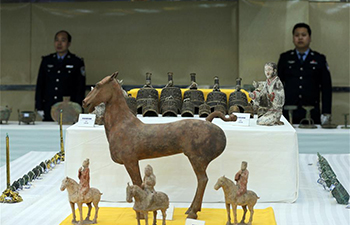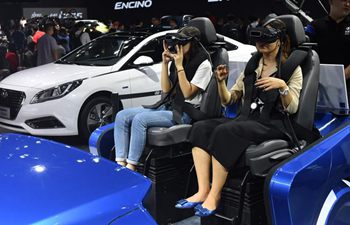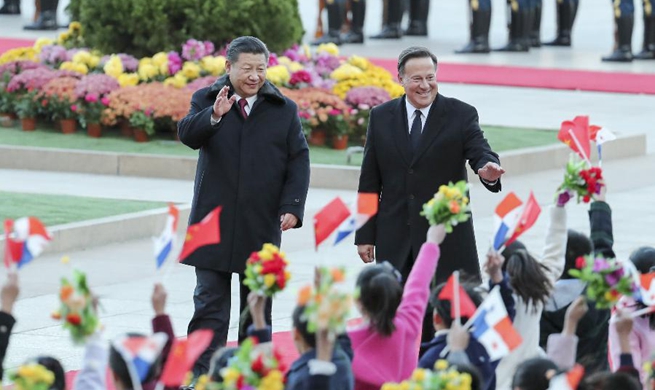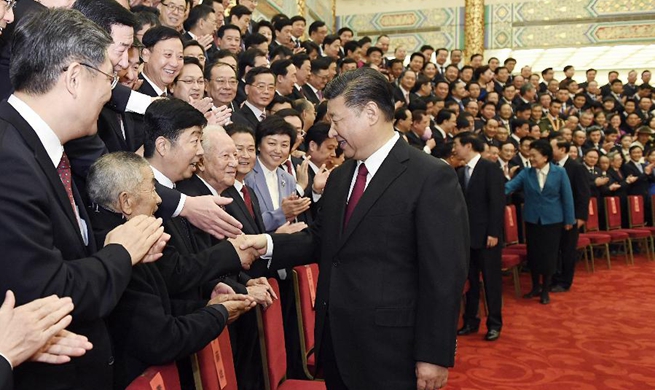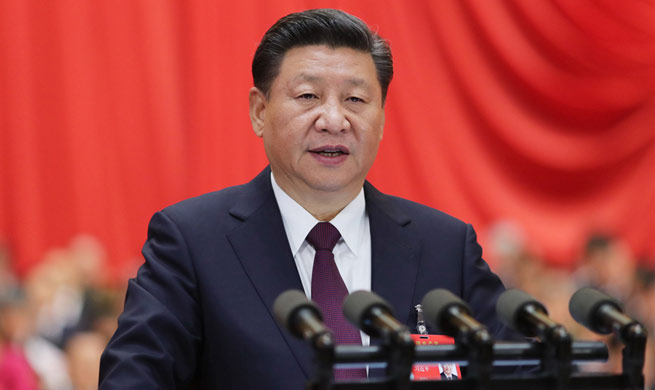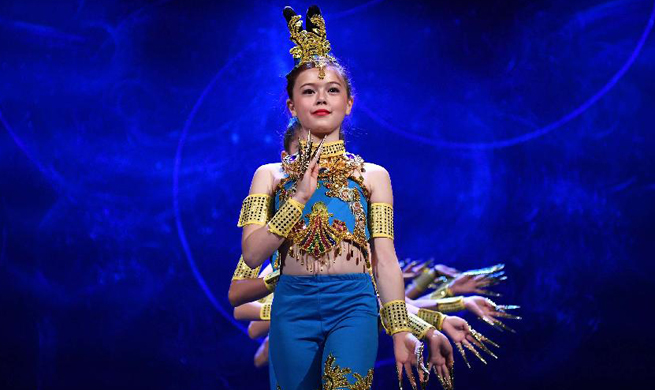LOS ANGELES, Nov. 17 (Xinhua) -- Apple's high-end smartspeaker competitor to Echo and Assistant offerings from Amazon and Google will miss the upcoming holiday rush.
The tech giant announced Friday that its expensive Siri-powered smart speaker, HomePod, was being pushed back to 2018 and would not be meeting the company's initial December ship date.
"We can't wait for people to experience HomePod, Apple's breakthrough wireless speaker for the home, but we need a little more time before it's ready for our customers," Apple said in a statement. "We'll start shipping in the U.S., UK and Australia in early 2018."
It's unclear why the product has been delayed. For customers hoping to buy a HomePod as a gift for this holiday season, they'll have to come up with Plan B.
Apple HomePod, debuted in June at Apple's 2017 Worldwide Developers Conference (WWDC), will be its first big new hardware product since Apple Watch.
HomePod is Apple's entry into the smart speaker market. It will work with Apple's HomeKit platform to control smart-home devices.
Although Siri was early to the voice assistant party, the company is late to the smart speaker trend. At 349 U.S. dollars, HomePod was poised to be one of the pricier smart speakers on the market, but it touts superior sound quality.
Meanwhile, many well-priced smart speakers such as Amazon's Alexa, Google Assistant and even Microsoft's Cortana have taken over the market this year.
The two market leaders, Amazon and Google, in voice-activated home speakers have about 27 million devices in U.S. homes, up from about 5 million one year ago, according to media reports.
A few months after Apple announced its software platform, HomeKit, at WWDC 2014, Amazon began selling Echo, a 180-U.S.-dollar plug-in Wi-Fi voice-controlled speaker that answers to the wake word, "Alexa."
There are now similar options available from Google and Microsoft. Google Home, Google's 130-U.S.-dollar competitor Echo, announced in May 2016, works in much the same way. Say "OK, Google," or "Hey, Google" and the Google Assistant will kick into listening mode.
Amazon invented the category in 2015 with Echo. Alexa's open software makes it easy for developers to create their own uses for Echo and Amazon's other speakers -- the 20-U.S.-dollar Dash Wand, 50-U.S.-dollar Echo Dot, the 130-U.S.-dollars Tap, the 200-U.S.-dollar Echo Look and the 230-U.S.-dollar Echo Show.
The company has also started shipping a new version of the standard Echo, improved upon the earlier product's audio with Dolby sound, coupled with a 2.5-inch subwoofer and 0.6-inch tweeter.
A Google Home Mini costs 49 U.S. dollars, but the company has also introduced an even more direct competitor in the Home Max, a 399-dollar smart speaker that appears to still be in line for release next month.
There are also a number of third-party offerings from the likes of Sony and JBL, an American audio electronics company.







